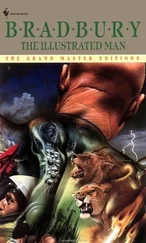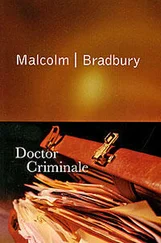Malcolm Bradbury - The History Man
Здесь есть возможность читать онлайн «Malcolm Bradbury - The History Man» весь текст электронной книги совершенно бесплатно (целиком полную версию без сокращений). В некоторых случаях можно слушать аудио, скачать через торрент в формате fb2 и присутствует краткое содержание. Жанр: Современная проза, на английском языке. Описание произведения, (предисловие) а так же отзывы посетителей доступны на портале библиотеки ЛибКат.
- Название:The History Man
- Автор:
- Жанр:
- Год:неизвестен
- ISBN:нет данных
- Рейтинг книги:3 / 5. Голосов: 1
-
Избранное:Добавить в избранное
- Отзывы:
-
Ваша оценка:
- 60
- 1
- 2
- 3
- 4
- 5
The History Man: краткое содержание, описание и аннотация
Предлагаем к чтению аннотацию, описание, краткое содержание или предисловие (зависит от того, что написал сам автор книги «The History Man»). Если вы не нашли необходимую информацию о книге — напишите в комментариях, мы постараемся отыскать её.
The History Man — читать онлайн бесплатно полную книгу (весь текст) целиком
Ниже представлен текст книги, разбитый по страницам. Система сохранения места последней прочитанной страницы, позволяет с удобством читать онлайн бесплатно книгу «The History Man», без необходимости каждый раз заново искать на чём Вы остановились. Поставьте закладку, и сможете в любой момент перейти на страницу, на которой закончили чтение.
Интервал:
Закладка:
'What's the new book, Howard?' asks Myra. 'What are you abolishing now?'
'People,' says Barbara. 'Barbara doesn't understand this book,' says Howard. 'She's such an activist she thinks she can dispense with theory.'
'Howard's such a theoretician now he thinks he can dispense with action,' says Barbara. 'Why don't you tell Myra what's in the book? It's not often you meet someone who's really interested. You are really interested, aren't you, Myra?'
'Of course I am,' says Myra. 'It's called The Defeat of Privacy,' says Howard. 'It's about the fact that there are no more private selves, no more private corners in society, no more private properties, no more private acts.'
'No more private parts,' says Barbara. 'Mankind is making everything open and accessible.'
'Even me?' asks Myra. 'Oh, we know all about you,' says Howard. 'You see, sociological and psychological understanding is now giving us a total view of man, and democratic society is giving us total access to everything. There's nothing that's not confrontable. There are no concealments any longer, no mysterious dark places of the soul. We're all right there in front of the entire audience of the universe, in a state of exposure. We're all nude and available.' Myra looks up; she says, with a squeak, 'You mean there isn't a me any more?'
'You're there, you're present,' says Howard, 'but you happen to be a conjunction of known variables, cultural, psychological, genetic.'
'I think that's intellectual imperialism,' says Myra. 'I don't think I like your book, Howard.' Barbara says, 'But who is this me you're protecting? Isn't it just the old bourgeois personality cult, the idea that the individual just isn't accountable? Isn't that what the world's found the need to get away from?'
Myra casts her eyes, rather theatrically, around the kitchen, looking at the shelves with their Caso Pupo goblets, their French casseroles, their fish dishes, their dark brown pot labelled Sel; she says, with some dryness: 'Well, it must be very nice to feel you've transcended bourgeois individualism. I can't say I have.'
'But tell us more about this self you've got in there,' says Howard. 'There's a busy, active agent, with will and motive and feeling and desire. But where does it all come from? Genes, culture, economic and social potential. It acts out of specified forces under specified conditions.'
'I thought you always reckoned we were free,' says Myra. 'I thought this was the big Kirk message.'
'Ah, the big Kirk message,' says Barbara. 'The point is, the self is in time, and it changes in time. The task is to realize our selves by changing the environment. To maximize historical potential to the uttermost.'
'By being nude and available,' says Myra. 'When history's inevitable,' says Howard, 'lie back and enjoy it.' Myra burst into laughter; she says, 'That's just what you are, Howard. An historical rapist. Prodding the future into everyone you can lay your hands on.'
'How true,' says Barbara. 'Oh, come on, Howard,' says Myra, 'of course there's a me. I'm in here, I know.'
'What's it like, Myra?' asks Howard. 'It's not you, and it's private, and it's self-conscious, and it's very bloody fascinating.'
'Oh, Myra,' says Howard. Myra suddenly puts down the knife; her laughter has gone. She says: 'There's a me, and I'm sick of it.' The Kirks look at her; they notice that a long streak of a tear has established itself on Myra 's nose. Barbara sits down next to her; she says, 'What's up, Myra?' Myra reaches into the handbag she has brought, an old, party handbag from the days when there were party handbags, black with cracked sequins sewn onto it. She takes out a green square of Kleenex and puts it to her nose. She says 'Actually, Kirks, I didn't come here just to help you cut bread. I came because I want you to help me. I want to tell you something. Before Henry gets here. I'm separating from him.' Barbara says: 'You, Myra?' Myra sniffs. She says, 'I know I'm an old bourgeois individualist who's not supposed to freak out. But, God, I need help. And I knew just who to come to. I thought, the Kirks. They're such a great couple.' The Kirks, the great couple, stare at each other, and feel like a couple. 'Of course we'll help,' says Barbara, 'we'll do everything we can.'
V
The Kirks and Beamishes have known each other for a very long time, since the days in Leeds, in fact, where Howard and Henry were graduate students together. Over the years in Watermouth they have seen a good deal of each other; it is one of those relationships which, based on an old friendship, keeps on running its course, even though the subscribing parties to it have all changed and have little really to say to each other. The Beamishes have come to the Kirk parties; the Kirks go to the Beamishes; they talk a lot to one another, over the telephone and in person. There have even been closer intimacies. Once, in the days of 1968, when everything was unsettled, Howard went out to the farmhouse, after a telephone call from Myra. Henry was out teaching an evening class on Conflict in Modern Society, at an adult education centre in one of the nearby seaside towns; Myra was sitting on the sofa crying; Howard went to bed with her. It was a failed, unrepeated occasion; he remembers nothing about the event but the anxiety afterwards, with himself on his knees, naked, wiping all trace of his presence from the bedroom carpet, while Myra made the bed, hoovered the house, emptied the ashtrays and washed all the glasses, to make everything exactly and precisely as it was before. The space between them was growing wide then, and now seems immeasurable; today the Kirks have only to look at Myra, sitting there, a knife in her hand, in that old chiffon party dress no one else in their entire acquaintance would wear, to see how much they themselves have changed, developed, grown up with experience, since they first came to Watermouth. As for the Beamishes, they profess somehow to understand the Kirks, to be privileged intimates; what they do not understand is that the Kirks they understand are people of several protean distillations back, people they themselves cannot remember ever having been.
Meanwhile the Beamishes, like some extraordinary historical measuring rod, have managed to persist just as they were when the Kirks first found them in Watermouth. Enormities have torn through the world, tempers have altered; the Beamishes have become different only by their obstinacy in staying the same, living on in a strange cocoon of old experience which strains them without altering them. Or have they altered? The Kirks look at Myra, as she cries in their kitchen, her outrage stated. Howard remembers her tearful unease of years ago; he thinks, disconfirmingly, of Henry, and what he has become. For Henry has now grown fat; he has taken to talking in a loud, heavy voice; he has become noticeably lazy. In the department, in the common-room, when intellectual matters are discussed, he has acquired a manner of shifting conversation round to questions of manure and pasture and the state of nature in general. When Howard or others try to push him on sociological or political matters, he looks pained. Once, in Howard's study, as they had gone through finals marks together, he had begun to cry a little and accuse Howard of damaging his career, in ways he could not quite name; Howard, it seemed, by doing what Henry had always intended to do, had stopped Henry from doing it himself. 'That's foolish,' Howard had said; 'I've become foolish,' Henry had said. And Myra, too, has darkened and become stranger; she noticeably drinks more, and talks frenziedly at parties, as if there were nowhere else in the world to talk. 'Why?' he says to her. 'Why do you want to leave him?'
Myra 's expression is blank but slightly mystified, as if she had not expected such a question; surely the Kirks have an instinctive comprehension of all marital disillusion. 'I suppose for the most obvious of all reasons,' she says, 'I want the chance to exist, which I've been denied. I'd like to assert my identity. That is, Howard, if you've left me with one.'
Читать дальшеИнтервал:
Закладка:
Похожие книги на «The History Man»
Представляем Вашему вниманию похожие книги на «The History Man» списком для выбора. Мы отобрали схожую по названию и смыслу литературу в надежде предоставить читателям больше вариантов отыскать новые, интересные, ещё непрочитанные произведения.
Обсуждение, отзывы о книге «The History Man» и просто собственные мнения читателей. Оставьте ваши комментарии, напишите, что Вы думаете о произведении, его смысле или главных героях. Укажите что конкретно понравилось, а что нет, и почему Вы так считаете.











